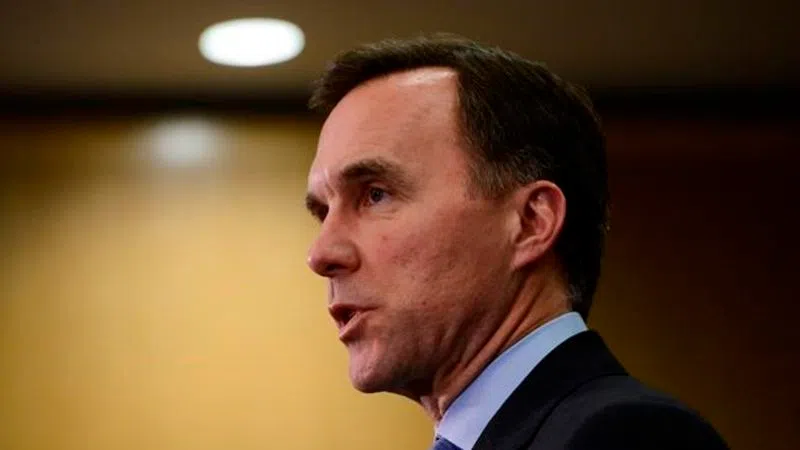
Morneau takes shot at Tories over recession talk in wake of fiscal update
OTTAWA — The political war-of-words around the national economy took another turn on Sunday’s political talk shows as the federal finance minister warned Conservatives to cease claims of a looming recession.
Finance Minister Bill Morneau also suggested in separate broadcast interviews that the country’s economic track will have a bearing on how the Liberals steer their government’s budget in the coming years.
On CTV’s Question Period, Morneau warned his Conservative critics to avoid the “irresponsible” claims when private sector economists project growth, which the fiscal update estimated at 1.7 per cent this year and 1.6 per cent in 2020.
The projections would make Canada’s the second-fastest-growing economy among G7 countries, behind only the United States.


